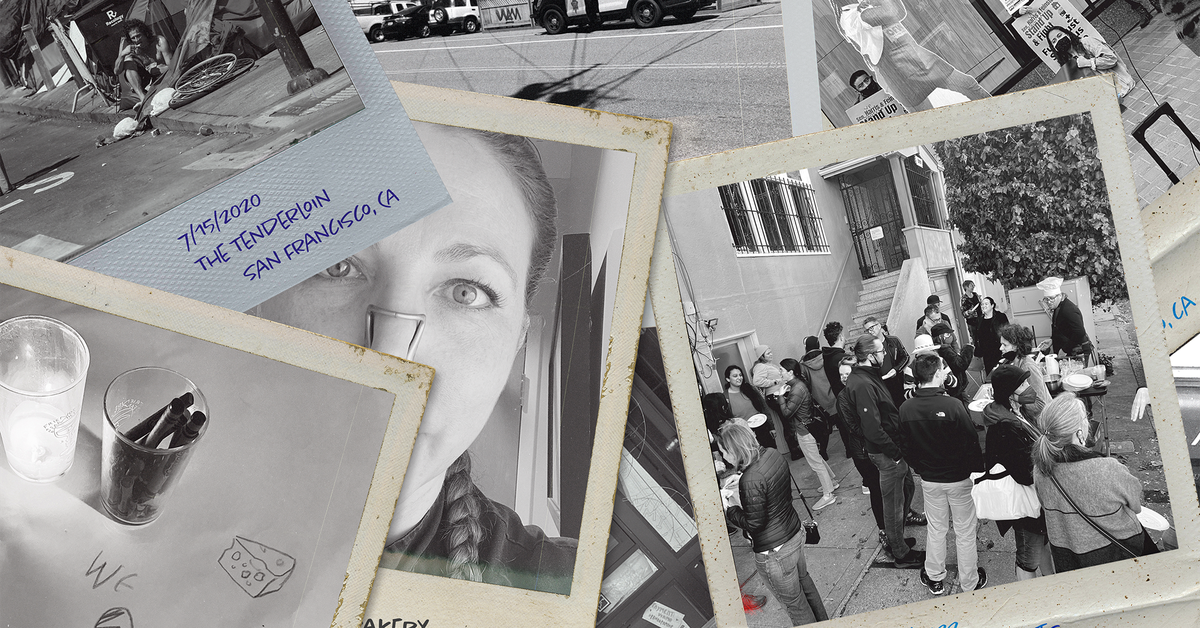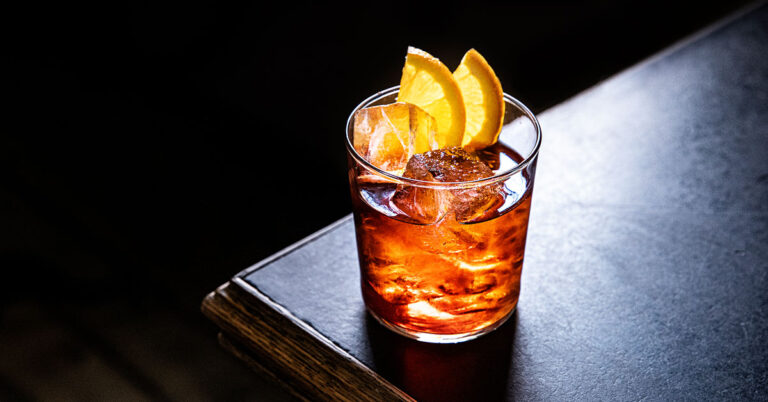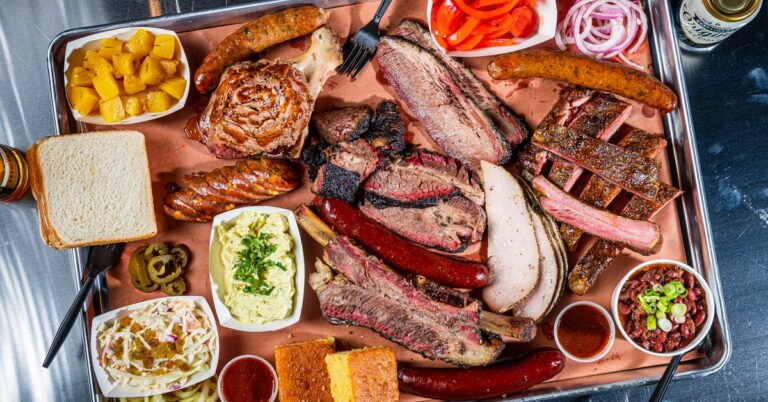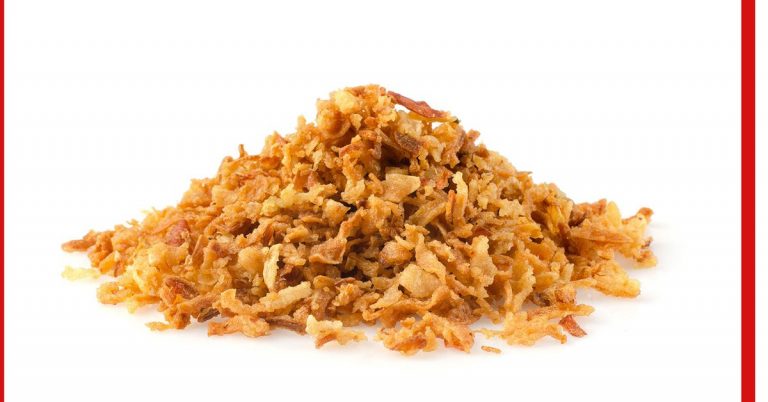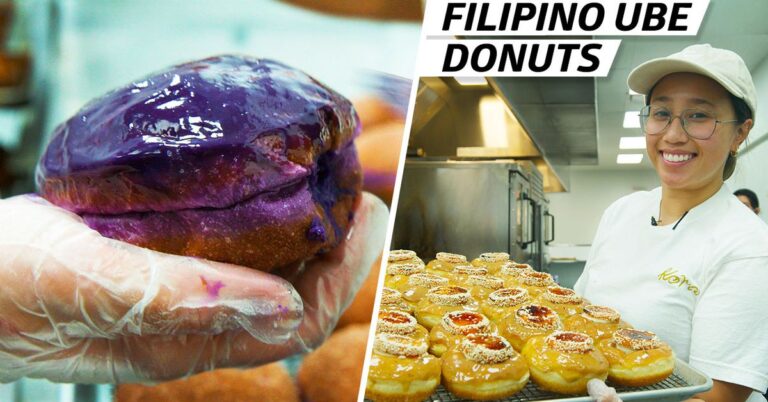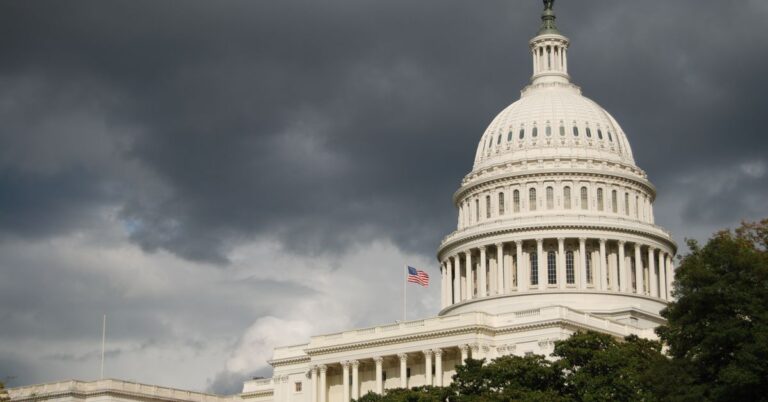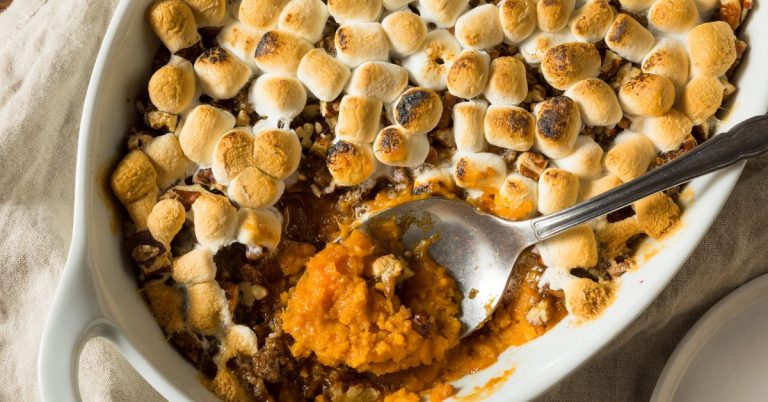Snapshots: Two Years of COVID-19 in the San Francisco Bay Area Restaurant Industry
Where were you on March 16, 2020?
For most Californians, it’s a day that may not fade from memory, even with time. On that morning, gathered around televisions or hunched over computer screens attempting to absorb the news, myriad individual pandemic stories began to unspool — in countless ways and physical places, and also all at once. In the 24 months since, those stories have splintered and separated into incalculable experiences of fear and frustration and hope and joy.
No industry has been impacted quite like restaurants, which thrive when people gather and flounder when social interaction becomes hazardous. But despite the loss of thousands of businesses and jobs over the last two years, restaurants and bars are undeniably beginning to rebound, in some ways, stronger and more sustainably than ever. The Bay Area is still far from done with COVID-19, but two years might be enough distance to at least begin to appreciate just how far it has come.
Here are the highs and lows of the past 24 months of the COVID-19 pandemic, as experienced by 11 people from across the Bay Area hospitality industry — from a fine dining chef to a head baker to an East Bay bar owner — as told to Eater SF.
Oakland, 3/20 | San Francisco, 3/20 | Bernal Heights, 3/20 | The Tenderloin, 7/20 | Napa, 9/20 |
St. Helena, 10/20 |
Benicia, 10/20 | Bernal Heights, 12/20 |
Benicia, 1/21 |
San Francisco, 2/21 |
Outer Sunset, 4/21 |
Outer Sunset, 6/21 |
The Tenderloin, 7/21 |
San Francisco, 10/21 |
Milpitas, 10/21 |
San Francisco, 12/21 |
Milpitas, 1/22 |
San Francisco, 1/22 |
San Francisco, 2/22 | Oakland, 2/22
“Crashing down before it even started”
Blake Cole, owner of Friends and Family in Oakland
As told to Ray Levy Uyeda
:no_upscale()/cdn.vox-cdn.com/uploads/chorus_asset/file/23320663/Eater_SF_Covid_Timeline_Polaroids_0000_Friends___FAmily.png)
Photo courtesy of Blake Cole
We were fully staffed and ready to open in November 2019, just waiting on the East Bay Municipal Utility District to come to the location to give us a water meter, which is why we were delayed until February 2020 to receive a final inspection. That weekend in March, we had done some private events and the news was coming out, and we were all feeling a little unsure. I remember the day of the inspection; I was sketched out and standing away from everybody but nobody was wearing a mask. One of my landlords was here and said, “Don’t worry about it, this space will be filled by Friday.” I thought, I’m not so sure about that.
We got the final inspection, and I went home and cried out of a feeling of overwhelming bittersweetness because I knew that this was not going to be over in a week. It was this really bizarre, somber day where everything that we had been working toward for three years had just kind of come crashing down before it even started. I don’t remember how long it took for us to realize the pandemic was going to take a while, but shortly after the final inspection we had all the staff come and pick up food, toilet paper, and supplies to take home with them. It felt like I had just been broken up with and there was nothing I could do about it and I just had to sit in the feeling.
“Lemon cake mix”
Curtis Kimball, former owner of San Francisco’s the Creme Brulee Cart
As told to Paolo Bicchieri
:no_upscale()/cdn.vox-cdn.com/uploads/chorus_asset/file/23304974/Eater_SF_Covid_Timeline_Polaroids_0018_Creme_Brulee_Cart.png)
Photo courtesy Curtis Kimball
We were living in the East Bay, in Oakland, when the pandemic began. In February, I was telling people I knew, “You should start adjusting your plans because things are going to get crazy.” In the morning, there were rumors [the lockdown] was going to happen. My wife was like eight months pregnant and we had a 2-and-a-half year old daughter. The day when everything shut down in the Bay Area — in the morning when the rumors were going around — I was freaking out. I was freaking the fuck out.
There’s an instinct to try to take care of your family and neighbors or whatever, so I went to the store to stock up on stuff. But everybody was at the store, right? It was Farmer Joe’s in Oakland, a Rainbow Grocery kind of place, and there was a line that stretched around the whole outside of the store and through the aisles. I was just grabbing shit. Everything was selling out. I didn’t know what to get. Will we be able to go to the store in weeks? Or is it going to be months? The funniest thing I grabbed was a lemon cake mix which we never made and I still laugh about. I just had all this shit in my hands, my hands were stuffed — I’m kind of breaking down thinking about it now — and an older woman in front of me, she just asked, “Hey, do you want to set your stuff in my cart?”
“All I was qualified to do”
Regen Williams, former store manager at Epicurean Trader in Bernal Heights
As told to Paolo Bicchieri
:no_upscale()/cdn.vox-cdn.com/uploads/chorus_asset/file/23304979/Eater_SF_Covid_Timeline_Polaroids_0017_Tartine.png)
Photo courtesy Regen Williams
I was working as an apprentice at Gardenias in the Fillmore, and I saw Tartine was opening a new location. I thought, I’m just going to apply — who knows. I was so excited to help them open that Sunset location. It was incredible working there, a real treat, and I was there maybe eight months before the pandemic hit. It was early, and things were tense there right after employees announced [plans] to unionize in February 2020. I was very active in that as well. Tartine didn’t offer a lot of insight into what was going on with our jobs — and everything was scary in general. I was the opening baker at 4:30 in the morning. My only mode of transit was the bus, which of course was unreliable at that time, and Tartine’s plan was to stay open. That felt unsafe, so I said no. I didn’t want to be in a public space, but that was all I was qualified to do; all my experience was in hospitality. I just didn’t have a job for two months after that.
“Disaster loans”
Santos Gurush, owner Himalayan Pizza & Momo in the Tenderloin
As told to Paolo Bicchieri
:no_upscale()/cdn.vox-cdn.com/uploads/chorus_asset/file/23304981/Eater_SF_Covid_Timeline_Polaroids_0016_Tenderloin.png)
Getty
As soon as COVID started, we had to lay off some of our employees and reduce operating hours to keep ourselves alive. We were in a position where we asked ourselves what could come next because our revenue had already dropped 40 percent. We held a team meeting to see what would be our next move. On the other hand, we started applying for loans from the government: disaster loans.
The neighborhood got even worse. We had problems with people selling drugs on the corner, even before the pandemic. But after the pandemic, it went crazy. The safety issues in the neighborhood had people hesitating to come. One regular customer — her name is Megan — was having a pizza in the dining room. A homeless man came to her table and took away her pizza. We couldn’t do anything.
Editor’s note: In December 2021, San Francisco Mayor London Breed declared an official State of Emergency in the Tenderloin, in response to a rising number of deaths in the area during the COVID-19 pandemic. The Tenderloin Emergency Initiative, a partnership between the community and the City and County of San Francisco, provides shelter, drug treatment, and other resources in the neighborhood.
“No romaine left to make a salad”
Cynthia Ariosta, operating partner of St. Helena’s Pizzeria Tra Vigne
As told to Christina Mueller
:no_upscale()/cdn.vox-cdn.com/uploads/chorus_asset/file/23304982/Eater_SF_Covid_Timeline_Polaroids_0015_Glass_Fire.png)
Getty
The Glass Fire that sparked on September 26 and lasted through October 6 or so literally surrounded the town of St. Helena. It involved our making $8,000 the day the fire started as evacuees fleeing stopped for something to eat, to shutting down the business for days because of smoke, to fighting the state to allow an exception to the “outdoor dining only” rule in place at the time when the Air Quality Index was 306 or higher. We couldn’t get deliveries; we literally had no romaine left to make a salad. We could not support a restaurant from the few people who had not evacuated downtown. There was no provision for rescue monies to even bring the local businesses back to pandemic-level of Paycheck Protection Program support and no provision for getting insurance money either.
“It was brutal, but it literally saved our business”
Nash Cognetti, executive chef at Pizzeria Tra Vigne and Tre Posti in St. Helena
As told to Christina Mueller
:no_upscale()/cdn.vox-cdn.com/uploads/chorus_asset/file/23320677/Eater_SF_Covid_Timeline_Polaroids_0014_St._Helena.png)
Photo courtesy of Cynthia Ariosta
The fires basically put an end to most of the scrappy, outside-the-box business attempts that most of us in Napa were trying to pull off. Locals left or hibernated even more at home and any of the COVID day-trippers from around the Bay Area stayed away from Napa or Sonoma. Obviously, out-of-town tourism was dead at that point, so there was really zero customer base. But we suddenly got a contract from Pacific Gas & Electric (PG&E) to cook 700 meals a day at their emergency command station at Krug [Winery]. We cooked breakfast daily for 700 and lunch and dinner about two or three days a week for 50 to 60 firefighters and other first responders. Breakfast was delivered, individually boxed, and hot by 5:30 a.m. daily, seven days a week. Basically, that began right after the fires and continued right up to Thanksgiving. It was brutal, but it literally saved our business.
“Dead dough”
Hannalee Pervan, co-owner and head chef at One House Bakery in Benicia
As told to Lou Bustamante
:no_upscale()/cdn.vox-cdn.com/uploads/chorus_asset/file/23305017/Eater_SF_Covid_Timeline_Polaroids_0013_One_House_Bakery.png)
Photo courtesy Hannalee Pervan
Every year Benicia has a scarecrow contest for all the businesses on First Street, and my mom and I enter it together. We make the entire thing out of dead dough — essentially bread but without yeast. The first few months of the pandemic were absolutely insane, so mom and I got a chance to be creative for a second. We were obsessed with The Mandalorian and we thought, “Oh my god, we have to make that!” Then it just rippled to the Pain-dough-lorian and Baby Dough-da, then the Pandroid.
We would work all day, and then stay and use the sheeter to roll out dough. We were working on it for like three weeks I think, maybe even longer. We had Baby Yoda, flying in this big mixing bowl, and I made his little robe out of bread. We left the display out overnight in front of the bakery with a light on, and at first, we were worried someone was going to steal it. Then we realized that it was way too heavy to steal. It was about 100 pounds; it was a lot of dough. That year there was no voting, so we didn’t even win, but everyone loved it and it got a lot of attention. People were lining up along the street to take pictures, then one of the creators and art director from The Mandalorian came by and gave us pins. Then they showed our picture on Live with Kelly and Ryan, and we were like, “What is happening?”
“Nobody cared”
Regen Williams, former store manager at Epicurean Trader in Bernal Heights
As told to Paolo Bicchieri
:no_upscale()/cdn.vox-cdn.com/uploads/chorus_asset/file/23320681/Eater_SF_Covid_Timeline_Polaroids_0012_Epicurean_Trader.png)
Photo courtesy of Regen Williams
I ended up hearing about a job with Epicurean Trader. I had worked in a cheese shop a long time ago, so I thought, I like wine and I like food. I applied for a cashier position and really ended up liking it a lot. From July 2020 to July 2021 I was there and ended up managing the store.
The holiday was so busy, even with the pandemic. Nobody cared. All four of the stores were fully slammed the whole time. It’s not like I was seeing family members or anything. I worked all the way through Thanksgiving, all the way through Christmas, fully in public, front-facing. I have to pay rent; I had to do these things. I remember feeling frustrated, feeling stressed during the holiday season with COVID cases going up because it’s winter. Funny enough, Epicurean Trader sells pies from Tartine and based on how many we were selling, I knew people were meeting up with families and friends for the holidays. It was at that point in the pandemic when you really shouldn’t have been meeting in groups, but I knew people were gathering.
“I cook with a nose plug”
Hannalee Pervan, co-owner and head chef at One House Bakery in Benicia
As told to Lou Bustamante
:no_upscale()/cdn.vox-cdn.com/uploads/chorus_asset/file/23305020/Eater_SF_Covid_Timeline_Polaroids_0011_One_House_Bakery_2.png)
Photo courtesy Hannalee Pervan
It was surreal in the beginning. My sense of smell and taste just suddenly went away, but I didn’t feel sick or have a fever, and wasn’t coughing. The doctors say, “It’s okay, it’s normal for COVID.” So I’m trying to figure out a new way to cook based on memories. I can’t taste salt anymore; I can’t taste acid. Nothing. Absolutely nothing. Then finally I could taste raspberry, and I thought, “Okay, it’s coming back.” And then everything switched to burning, and then it just went downhill. It turned to rotting trash, to rotting flesh, and to the most rancid and vile flavors and smells. It not only took my ability to enjoy food, it took my ability to enjoy cooking food. Now I cook with a nose plug on the really bad days. I can’t just not cook; I have a business to run. I can’t be like, “I can’t do this because it’s unpleasant.”
I went to the doctor, and they said that there’s absolutely nothing they could do. I did the smell training, and all of the things. So, I decided to try to switch my thinking instead. Now I’m taking Prozac and trying to let go of the anger and the sadness. My main goal was to have a bakery that provided people with happiness and love, and that part of the business has not changed. It’s just my own happiness that I need to try to figure out.
“Then a little bit of hope came”
Yuka Ioroi, co-owner Cassava in the Richmond
As told to Lauren Saria
:no_upscale()/cdn.vox-cdn.com/uploads/chorus_asset/file/23305023/Eater_SF_Covid_Timeline_Polaroids_0010_San_Francisco.png)
Photo courtesy Yuka Ioroi
After January [2021], we started feeling that we needed to get back to normal but we were so scared. And that’s when you started learning about long COVID. It was like, I’m not trying to lose my sense of smell and taste, right? But then a little bit of hope came — we were all looking like, okay, there’s no vaccine appointments, there’s no vaccines appointments, and then a lot of us were just looking at the site and it was like, “Oh my god, there’s hella vaccine appointments this Sunday morning! Let’s go!”
So that was Sunday, and it was like, we’re closed Monday and Tuesday so if we get hella fucked up, we’ll have two days to recover and Wednesday we can close. It’s fine. We went to the Oakland Coliseum. It was run by FEMA and it was right after the administration changed, right? It was like, wow, if Trump is gone then America does what it does. This is how it works. But then I was freaking out about the side effects. So 15 minutes after the shot I was like, “Am I gonna die?” All three times, my side effects were really bad. But after everyone got the second shot we were like, okay. Among us, we started going out to restaurants and feeling a little better about dining out.
“We had to replace everything”
Shuai Yang, owner of Old Mandarin Islamic Restaurant in the Outer Sunset
As told to Lauren Saria
:no_upscale()/cdn.vox-cdn.com/uploads/chorus_asset/file/23305024/Eater_SF_Covid_Timeline_Polaroids_0009_Old_Mandarin_Islamic.png)
Photo courtesy Shuai Yang
We got broken into. I don’t know if it’s because of the pandemic and people getting desperate, but they stole cash, all the tablets, the point of sale system, everything. Those tablets, I have to pay like $400 to UberEats to replace them. For them to steal them, it’s like, you can’t even use them. They’re only for delivery apps and for taking orders. But they broke the windows, the doors, we had to replace everything.
It’s happening all over the city, even in the Outer Sunset now. It’s getting a little bit rough. But I mean, it was bad timing after bad timing. Our business was down 45 to 50 percent at the beginning of the pandemic. We had to cut some of our workers. I know that’s part of owning a small business; there’s always something going on. But that timing, it was like, man, we can’t get a break. Plus you’d see customers coming in without a mask — and we required masks to be safe for everybody — but you’d get people who hate it. You’d see anger coming out. I felt it more than normal. More slurs, more racism. I mean, I’m just here to serve food. We don’t judge people, just put a mask on.
“I called PG&E for you”
Shuai Yang, owner of Old Mandarin Islamic Restaurant in the Outer Sunset
As told to Lauren Saria
:no_upscale()/cdn.vox-cdn.com/uploads/chorus_asset/file/23305026/Eater_SF_Covid_Timeline_Polaroids_0008_Old_Mandarin_islamic_2.png)
Photo courtesy Shuai Yang
Basically, we got a notice from the city that said you have to take your parklet down or we’re going to start giving you tickets. So I called and was like, “What’s going on here?” The city said PG&E had to do some road work on our street and they require you take it down. I was like, “Okay, can I have more time?” The guy was really nice but he was like, “They’re going to start work on Monday, so you have the weekend but you have to be gone by then.”
I’m always a guy who complies with the rules, but to hit us at that time on short notice … we built that parklet with our hard labor, you know? We did improvements later on — added a windshield and stuff like that — but roughly, just to build the parklet, it took about a week. It was three people: me, my uncle, and his friend. We built it right before Christmas 2020, but they shut everything down during Christmas — even outdoor dining, do you remember that? So we couldn’t use it for two months, then we started using it in March, then we had to take it down in June. So basically it was up for three months.
Our customers enjoyed our little parklet because people were still afraid during those crazy times. But, you know, our customers supported us and that meant more last year than at any other time. People were like, “I called PG&E for you.” Those little things just mean so much. Definitely the pandemic taught me this about the restaurant business: We miss the customers. It’s not a to-go business. It’s about hanging out at the restaurant and enjoying talking to your customers.
“A little bit better”
Santos Gurush, owner of Himalayan Pizza & Momo in the Tenderloin
As told to Paolo Bicchieri
:no_upscale()/cdn.vox-cdn.com/uploads/chorus_asset/file/23305031/Eater_SF_Covid_Timeline_Polaroids_0007_Himalayan_Pizza.png)
The neighborhood drug problem is getting worse. Not just for us, but kids and parents in the neighborhood. Some of the unhoused and low-income residents are friends to us, though. We provide EBT service for them. By summer, at least people have started to come out again. Things got slightly better. People liked our food, and they wanted to bring their kids, family, and friends, but because of the safety issues, they didn’t come often enough for us to feel stable. But people got used to the new pandemic state of things. Business got better, more to-go and preorders and a lot of supporting customers ordered directly from us because they knew the online orders charge us 15 percent. A little bit better.
Editor’s note: In December 2021, San Francisco mayor London Breed declared an official State of Emergency in the Tenderloin, in response to a rising number of deaths in the area during the COVID-19 pandemic. The Tenderloin Emergency Initiative, a partnership between the community and the City and County of San Francisco, provides shelter, drug treatment, and other resources in the neighborhood.
“It gave me a vision”
Rogelio Garcia, chef at Luce in San Francisco
As told to Paolo Bicchieri
:no_upscale()/cdn.vox-cdn.com/uploads/chorus_asset/file/23320685/Eater_SF_Covid_Timeline_Polaroids_0006_October_SF.png)
Photo courtesy Rogelio Garcia
I came to Luce in the fall after leaving Spruce right before the pandemic hit, but the restaurant wasn’t open, so I continued to do private events through the Bay Area. I used Luce’s kitchen, which was cool. I was thinking about this the other day because it was just me. If you have a bad night at a restaurant, it’s alright. If you have a bad night in somebody’s home, they’re not calling you back. I was the coordinator for these events, I was the dishwasher, I was the contact, I was the front of house — but it gave me a vision of what I really wanted to do. I cooked all over to keep myself going. San Francisco, Napa Valley, Marin, all the way to Tahoe and Santa Cruz, Pebble Beach. I did hundreds of events. I had to rent commissary kitchens at times. At the end of the day, I didn’t even know if Luce was going to reopen. It was all I could do to get by.
“It’s a gut punch”
Victor Huynh, owner of Vung Tau II in Milpitas
As told to Maria C. Hunt
:no_upscale()/cdn.vox-cdn.com/uploads/chorus_asset/file/23320694/Eater_SF_Covid_Timeline_Polaroids_0005_Vung_Tau.png)
Recently, we just got hit with a lawsuit. It’s an Americans with Disabilities Act lawsuit. One person goes around and sues hundreds of restaurants, just to get the penalty. It’s an $8,000 penalty. It’s an incentive for him to file lawsuits. It’s a gut punch. You’re stretched thin in terms of finances, and you get hit with that. It’s going to cost a minimum of $15,000 to get it to the endpoint.
He said he came out in August and filed a lawsuit in October, so we’re just in the beginning process of it. This thing was going around in San Francisco, and it was all over the Bay Area. I received some information from the city about how to prepare. I just didn’t imagine it would hit me. I’ve never been in this kind of situation. My sister has another restaurant in Palo Alto and also she got hit. It was about 30 restaurants on University in Palo Alto.
Editor’s note: The plaintiff suing Vung Tau II for violating the Americans with Disabilities Act, a federal law prohibiting discrimination based on disability, has filed more than 6,000 similar lawsuits against businesses in Northern California since 2003. In July 2021, the San Francisco District Attorney’s Office opened an investigation into a rash of lawsuits alleging ADA violations at businesses in San Francisco’s Chinatown.
“My whole being was like, no, this is not the way”
Yuka Ioroi, co-owner Cassava restaurant in the Richmond
As told to Lauren Saria
:no_upscale()/cdn.vox-cdn.com/uploads/chorus_asset/file/23320699/Eater_SF_Covid_Timeline_Polaroids_0004_cassava.png)
Photo courtesy of Yuka Ioroi
I thought that by putting the booster mandate [in place] people would still feel okay to come in, and we could finish the year. It wasn’t to cut people out because our clientele tends to prefer that we’re cautious and safe. We announced it on the 22nd, the same day as Zuni, and they were going to do it the next day — but then on the 24th in the morning, on Christmas Eve someone came in and said, “Oh the case numbers today are like 860-something.”
I was like, oh my god. My whole body, my whole being was like, no, this is not the way. No, no, no. I was like, we’re going to shut down. My husband hadn’t really started shopping for the following week so we’re like, “Okay, let’s just take food home and do Christmas Eve and then close.” It was the third time we closed because of COVID. But everyone was okay because everyone knows even when we close, they still get paid, so they weren’t worried about that at least, and I told them, “If you don’t have money for something, just tell me.” I was like, “I don’t know when we’ll reopen but I think by Valentine’s Day.” And it happened. In about six weeks, the whole surge was done.
“The ones keeping us alive”
Victor Huynh, owner of Vung Tau II in Milpitas
As told to Maria C. Hunt
:no_upscale()/cdn.vox-cdn.com/uploads/chorus_asset/file/23305044/Eater_SF_Covid_Timeline_Polaroids_0003_Keeping_Us_Alive.png)
Photo courtesy Maria Hunt
I’ve been here for 26 years, and I also worked at the San Jose location. Now that the San Jose restaurant is closed, I get some of their customers. Just last month, a young Hispanic couple came in. I was surprised because they knew the menu so well. I said, “You seem like you know what to order.” He told me, “My mom and dad took me [to the San Jose restaurant] and we ordered soup and we enjoyed it.” I’m glad to have new customers. I talked to them and my wife talked to them and got the story and welcomed them. Now I’ve been seeing them regularly.
There’s a lot of pride in owning your own business. A lot of people come in, and some of them you get to know along the way. You talk to them every time they come in. It’s almost like you have a lot of friends. You see them when you go to the grocery store. In 26 years, you see a lot of growth, and families and people. We have a good community here. A lot of our customers are regulars and they’ve been coming here for 10 or 20 years. They’re the ones keeping us alive.
“The Santa Claus of good vibes”
Curtis Kimball, former owner of San Francisco’s the Creme Brulee Cart
As told to Paolo Bicchieri
:no_upscale()/cdn.vox-cdn.com/uploads/chorus_asset/file/23305047/Eater_SF_Covid_Timeline_Polaroids_0002_Bernal_Heights.png)
Photo courtesy Curtis Kimball
The first part of the pandemic there was this insanely heavy, crushing weight. Like the survival of my kids and my wife and my parents and myself and my city and the species was smashing down on me. The first pancake party was like removing that weight. Each new person that came here smiling made everyone feel a little bit lighter. For an hour or two everyone kind of fluttered and floated in a way that was surprising and then anticipated.
For me, I connect these two totally different events and vibes. It’s hard to find moments in life where complete strangers are rooting for you. It was the diametric opposite of that day at the grocery store, but it was another moment in life where people are there to support you in a way where they don’t get anything out of it. Totally different events, totally different feelings, but behind them is the same thing of, “I’m a human and I’m rooting for you, and here’s a tiny little thing that’s going to help us get through.” I maybe got the most out of it because I got to feel like the Santa Claus of good vibes for a couple of hours. And as awesome as it is to receive good vibes, feels even better giving them.
“It came full circle”
Rogelio Garcia, chef at Luce in San Francisco
As told to Paolo Bicchieri
:no_upscale()/cdn.vox-cdn.com/uploads/chorus_asset/file/23305033/Eater_SF_Covid_Timeline_Polaroids_0001_Luce.png)
Photo courtesy Rogelio Garcia
Fast forward to reopening at Luce and I’m thinking, “Wow, it came full circle.” What was cool is I had developed so many clients from when I was doing private events that when I came to Luce, I could pass the restaurant catering clients. We started to call it “Luce On The Go” to bring that Michelin experience into people’s homes. The neat thing about it was all the people I cooked for while the restaurant was closed — and it must have been 100 events — they all were so supportive. They text me, they come to Luce, it’s so dope. In a way, COVID was helpful. I approach cooking differently now, guests differently now. It catapulted me in a new way.
I made this very easy honeynut squash and I served it in a Los Altos home, a beautiful community. It was this couple, and the gentleman eats all over the world. He has two super-cute daughters, like 3 and 5 years old. I served this soup, and it’s so bright, and for one of the daughters, it looked like mac and cheese. She was eating it, she loved it, then flash forward to me posting the recipe on my Instagram. The mother messaged me and said I served it to her daughter and she still remembers the “mac and cheese.”
“This is for everybody who lived it”
Blake Cole, owner of Friends and Family in Oakland
As told to Ray Levy Uyeda
:no_upscale()/cdn.vox-cdn.com/uploads/chorus_asset/file/23320709/Eater_SF_Covid_Timeline_Polaroids_0019_Friends___Family.png)
Photo courtesy of Blake Cole
We’re still in this — we’re not out of COVID. Omicron rocked us so hard; January and December were absolutely devastating for the business and for the crew. It was scary. The emotional part of managing was being forced to become public health officers and mental health care professionals for the public and the staff — I wasn’t prepared for that. The challenge was incredible. But on February 23, 2022, when we found out that Friends and Family had been nominated for a James Beard Award, that was the one day that I felt like I could exhale because it was a moment of recognition, validation, and joy; just sincere excitement for all of us. That was a day where I was like, “Oh, shit, this is cool.”
Given that April 2020 was the first time that we technically opened the door and started selling cocktails and some food to go, this year, I really want to do a birthday party/grand opening party because we never got to have one. We want to celebrate with the community of people that we’ve built here and that has shown up for us, and we also really want to celebrate these two years with the people who supported us while we were building Friends and Family, who never really got to enjoy the space and see it in its glory. We want the regulars to all meet each other. This is not just for us, this is for everybody who lived it.
Interviews have been edited and condensed for clarity.
